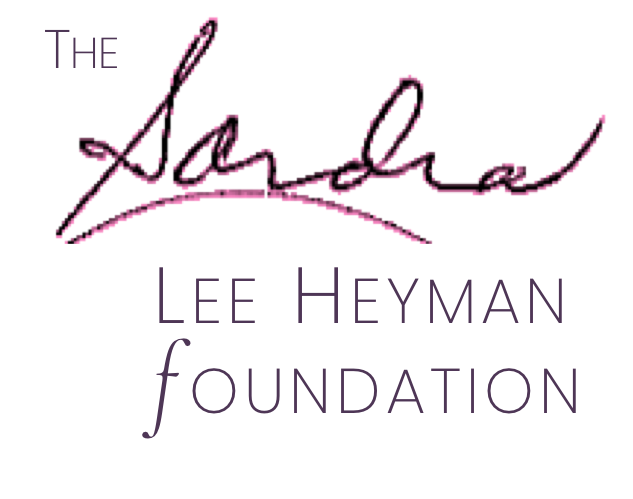Acoustical Ocean Ecologist Explores Education, Work Opportunities in Aquatic Research
Having spoken previously with an astronaut, Sandra Lee Heyman Fellows most recently headed in a completely direction – the depths of the ocean – when they met with Dr. Kelly Benoit-Bird. The prize-winning biologist offered insights about aquatic research, including everything from the latest tech innovations advancing our understanding of the oceans to the benefits of her favorite animal: the little-known California headlight fish that together with its neighbors “captures about a third of all of the carbon dioxide that we've put into the atmosphere.”
Benoit-Bird is a senior scientist and science chair at the Monterey Bay Aquarium Research Institute (MBARI) who uses acoustics to study marine organisms. With a BS degree in Aquatic Biology from Brown University and a PhD in Zoology from the University of Hawaii, she described her work as focusing on “how organisms interact with each other and their environment, which is where the ecology comes in.” Clearly, she does that job very well and creatively, having been awarded a prestigious MacArthur Fellowship (widely referred to as the “Genius Award”).
Benoit-Bird’s interest in marine biology began early on; she was hooked while on a 4th grade trip to a marine park and never looked back.
Responding to one fellow’s interest in when she chose a specialty, Benoit-Bird said “A lot of students come to me and think, ‘I want to be a marine scientist. I need to start specializing in a marine in marine classes now.’ I would say that’s absolutely not the case. A strong foundation in STEM generally is a great way to leave yourself options.”
Like several previous speakers, Benoit-Bird pointed to the value of internship experiences to find out what she liked – and just as importantly – what she did not like. In her case, a research experience while a junior in college helped her to decide not to pursue a career as a lab researcher; instead, she found that she loved being out in the field. It also helped her to figure out that she would need a graduate degree. “An interesting thing that a lot of students don't know is that most of the time graduate school in the sciences is not something you pay for,” Benoit-Bird confided to the fellows. “You have either a teaching assistantship, or a research assistantship, or some combination of those where you work something like typically 20 hours a week and do your research in your classes the rest of the time – and you don't pay tuition. The institution covers that for you.”
She said that mentors are key: “The kinds of questions you guys are asking right now is how you build a relationship with someone to convince them that they want to be your mentor, if you're willing to put yourself out there. It's not the easiest thing to do,” but that can happen naturally when you are excited about the work. Benoit-Bird added that “graduate students can be really wonderful mentors when you are an undergraduate.”
“You need a diverse range of mentors of all different stages and types. No one mentor is going to give you everything that you need in terms of development and growth.”
After receiving her Ph.D., postdoctoral studies, and then a 12-year stint as a professor at Oregon State University, Benoit-Bird moved to MBARI.
When asked what her daily work looks like, Benoit-Bird told the fellows that she considers the variety of her job responsibilities is a real plus. “One of the things I love most about my job is that no two days look the same. One day I'll be out on a boat in my hard hat and steel toed boots working on hydraulic equipment, trying to deploy things in the ocean and getting seasick. And the next day I am in the lab dissecting samples that we collected or in my office looking at electronic versions of data trying to make sense out of it. The next week I might travel to D.C., put on a suit, and go talk to lawmakers.”
Answering a question about challenges she has faced, Benoit-Bird described herself as one of a very few women in her field, which involves a lot of physics and engineering. That especially came into play while on a boat where she sometimes had to deal with captains who were not used to receiving directions from a woman.
Answering a fellows’ question, Benoit-Bird didn’t hesitate in saying that “The driving concern of our age has to be climate change, just because it's such a profound fundamental shift. It's one that if we don't address soon, there will really be very little we can do about it.”
Photo credit: Emily Qualey for PopTech (2012)
The Sandra Lee Heyman Foundation is a 501(c)(3) nonprofit organization established in memory of Sandra Lee Heyman, a long-time mathematics teacher at the elementary, middle school, high school, and community college levels. The 18-month long Fellowship is aimed at promising high school students who have the opportunity to meet with STEM leaders, visit prominent institutions in the Washington, D.C., area, and access peers and mentors to support career exploration in STEM fields. There are multiple ways to support the Fellowship program, and donations to the Foundation are tax deductible.
